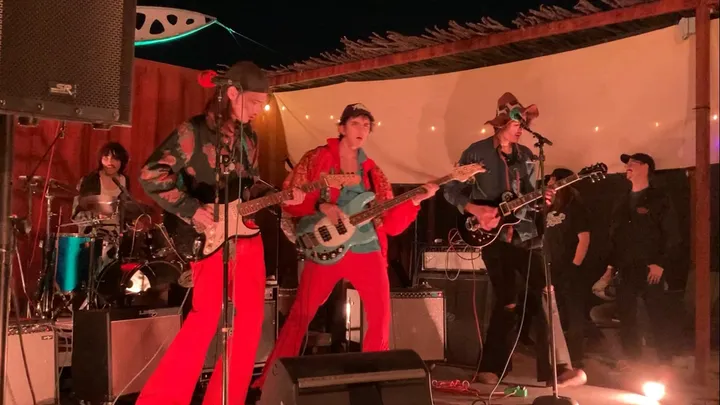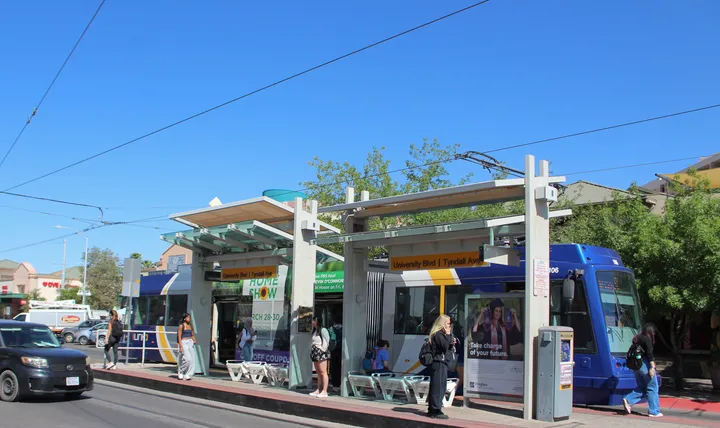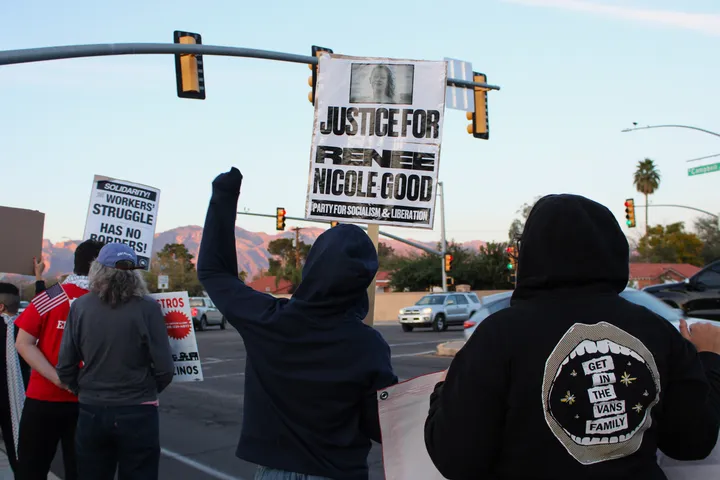Community leaders unite to tackle housing crisis amid federal cuts
Community leaders, advocates, and public officials gathered at the Primavera Foundation’s housing convening to confront Southern Arizona’s growing homelessness crisis and call for collaborative, community-driven solutions amid looming federal budget cuts.
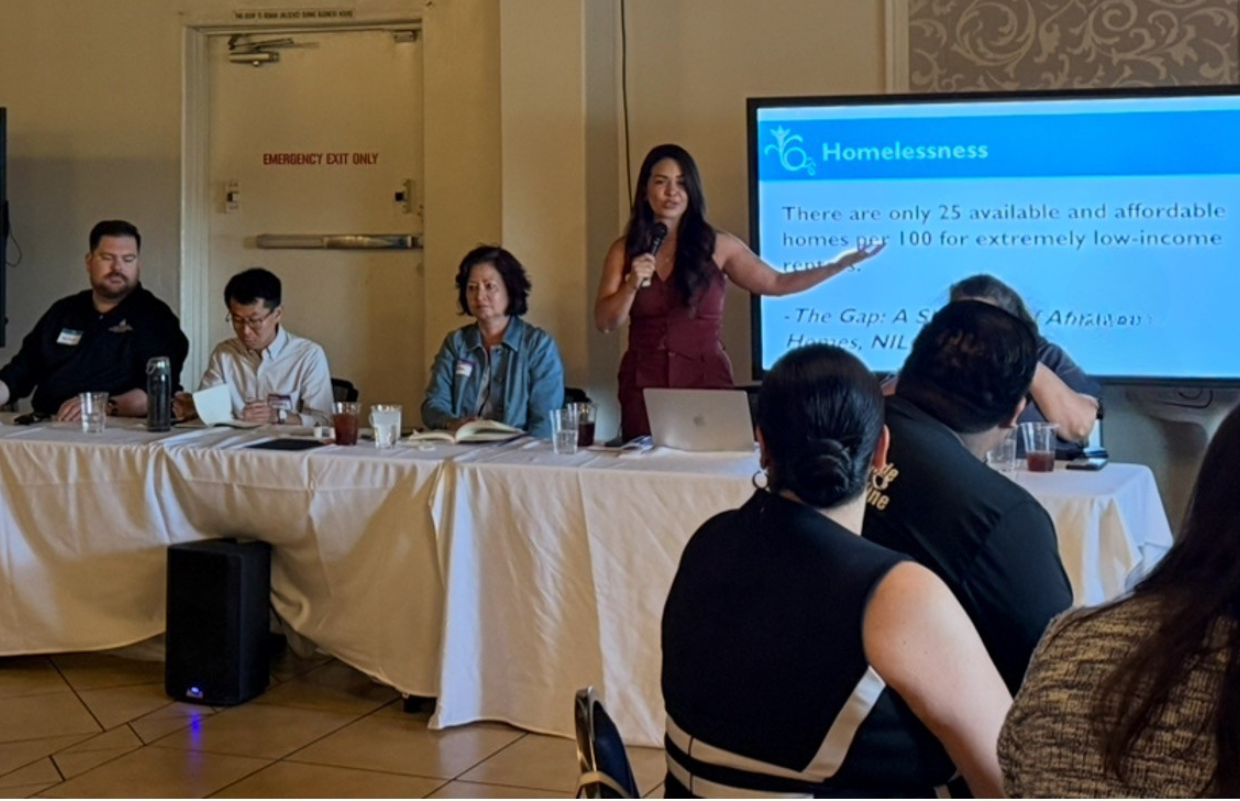
In the face of deepening housing insecurity and looming federal budget cuts, advocates, public officials and community members gathered last week not just to talk policy, but to demand urgent, collective action for Southern Arizona’s most vulnerable residents.
The Primavera Foundation’s Community Solutions on Housing and Homelessness Convening brought together more than 100 stakeholders for the event, which included a panel of seven local leaders who shared their insights on the region’s challenges and possible solutions.
Primavera CEO Tisha Tallman opened the event, painting a stark picture of the growing crisis, exacerbated by recent cuts in federal funds and staffing.
“The federal workforce has been cut by 290,000 people in the last 100 days. It can’t help but upset what’s going on in the community,” Tallman said.
She stressed the need for a response grounded in collaboration, with the federal government threatening to slash billions of dollars from programs vital to Tucson.
“Elimination and cutting programs isn’t always the answer,” she said. “If we come together in a cross-sector collaborative way, then maybe we don’t have to look at cutting.”
Panelists were clear that no single organization can solve the crisis alone, stressing the importance of lifting one another up and being part of the solution.
Tallman said ensuring that Tucsonans remain safe and housed is critical, especially with the brutal summer heat already creeping in.
Her words foreshadowed a running theme throughout the event: the need for a shift, for organizations to unify, and, most importantly, to create community-led strategies.
She challenged community members to rethink their relationship to homelessness and affordable housing and to entertain the idea of having a shelter in their neighborhoods.
“Say hello to someone who is unhoused and (don’t) turn our backs on our neighbors,” she said.
Panelists, including Pima County Community and Workforce Development Director Daniel Sullivan, shared powerful stories, speaking candidly about the challenges and pressures they face.
Staffing shortages have left about a quarter of Sullivan’s department’s critical positions unfilled, forcing his 230 staff members to do more with less.
Still, Sullivan expressed unwavering belief in Tucson’s resilience.
“This work doesn’t come with guarantees,” he said. “But laying people off would be the last thing we’d ever do.”
South Tucson Mayor Roxanna Valenzuela brought a dual perspective in her role as both a government leader and community advocate. She told attendees how South Tucson has “creatively” expanded housing options from six units to 250 by converting hotels and renovating neglected properties.
Valenzuela said housing insecurity disproportionately affects renter-majority populations vulnerable to gentrification and slumlords, and that public safety staffing shortages are compounding housing instability.
She said she and her colleagues at Casa Maria Soup Kitchen and on the South Tucson City Council remained determined, urging community members to get involved.
“It’s your talent and your participation that we need,” she said. “Join us at council meetings, write letters to the supervisors, stay engaged.”
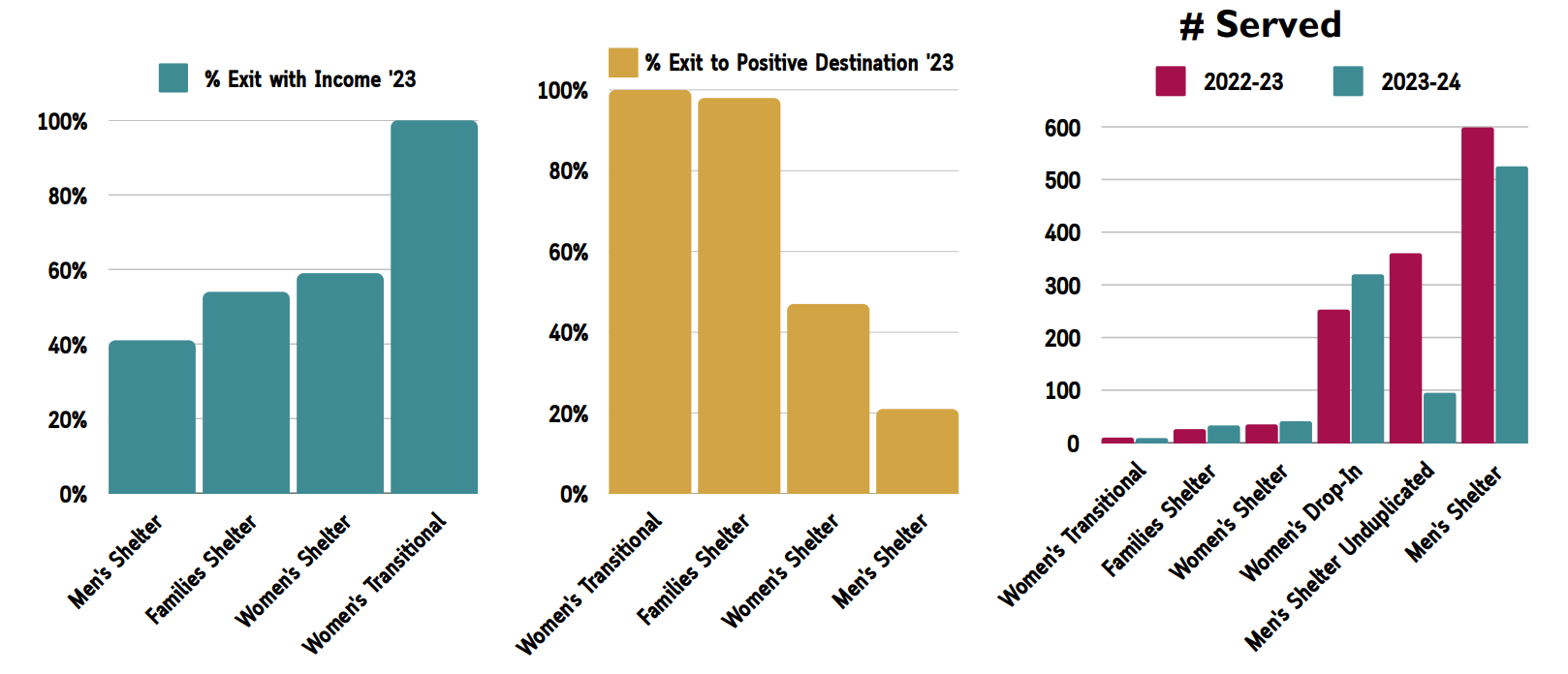
Barbara Abbott, a member of Primavera’s Lived Experience Advisory Council, called for compassion and dignity for the unhoused, reminding attendees that they are still people.
Having experienced homelessness for many years before finding her way back to stable housing, Abbott’s story is an example of what happens when the system works.
She said that stable housing is a foundation for health and opportunity, stressing how essential these services are in breaking the cycle of homelessness and generational poverty.
Tucson Housing and Community Development Director Ann Chanecka talked about the city’s Housing First strategy, which has helped more than 1,300 people find homes with an 80% transition rate from shelters to stable housing.
Chanecka warned of the potential threat proposed federal budget cuts pose to programs like Housing First. These cuts would drastically impact local public housing and voucher programs that serve thousands of Tucson families who earn less than $12,000 a year.
“There’s a lot of risk out there right now and not a lot of winners,” she said.
Chanecka stressed the need to protect vulnerable groups, expand case management, behavioral health support and medical respite care for those unhoused, and maintain food security.
Despite funding uncertainties, Pima County’s Sullivan remained optimistic.
“Tucson is strong. Pima County is strong,” he said. “We’ll get through this just like we’ve gotten through every other crisis.”
The group also said maintaining free public transit is essential to getting people to work and doctors’ appointments, calling it a prevention tool for people who can’t afford to miss work or fall behind on bills.
Terrance Watkins, executive director of housing and medical respite services at Catholic Community Services of Southern Arizona, reflected on lessons he learned during 2008’s Great Recession, when he first entered the field.
He said the era taught him that organizations thrive when they focus on their core strengths and work together, rather than stretch themselves thin.
He urged people to step back when others are better positioned to lead.
“Instead of trying to build new employment programs, I need to call back the guy who’s already amazing at that and figure out how we can collaborate,” Watkins said.
In the face of daunting challenges like shrinking budgets and uncertain futures, panelists agreed that it’s important to stay steadfast and keep working toward shared goals.
“We don’t have to settle on a community someone else wants us to have,” said the Primavera Foundation’s Tallman. “We can create our own community, but we can only do that collaboratively.”
Angelina Maynes is a University of Arizona alum and reporter with Tucson Spotlight. Contact her at angelinamaynes@arizona.edu.
Tucson Spotlight is a community-based newsroom that provides paid opportunities for students and rising journalists in Southern Arizona. Please support our work with a paid subscription.

